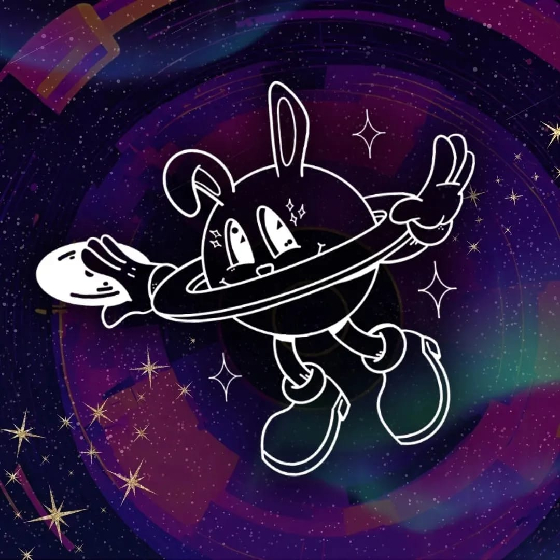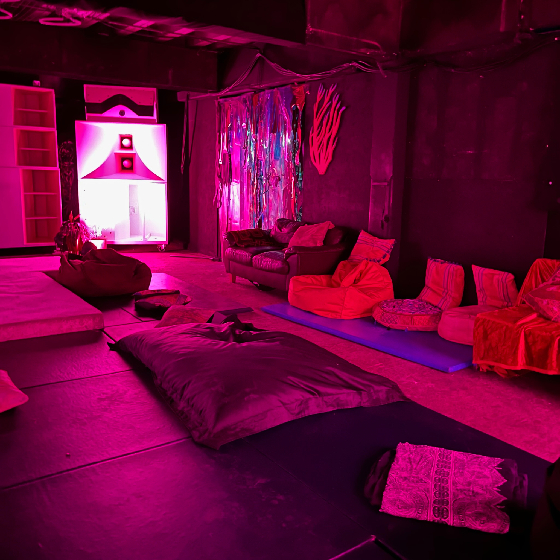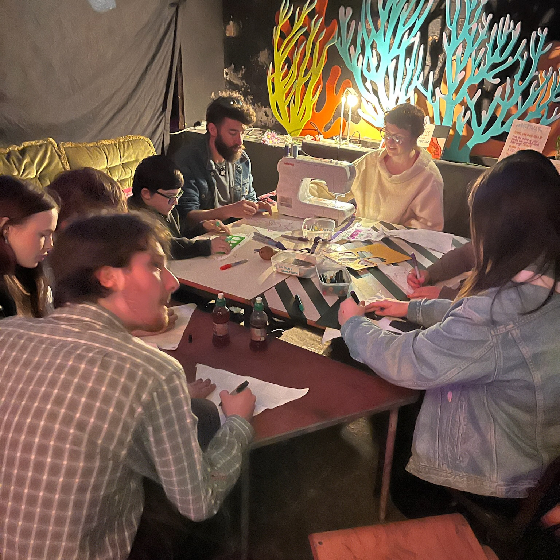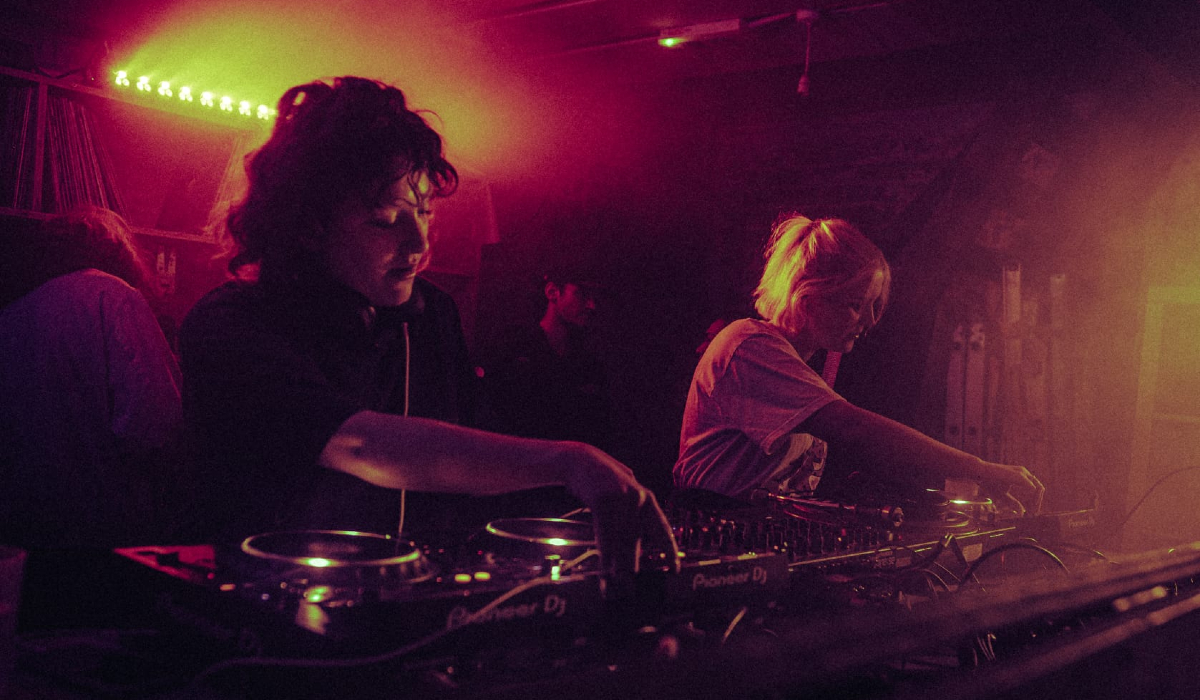NAVIGATING NIGHTLIFE: ALIEN IZZ’S VISION FOR AN ACCESSIBLE LIVERPOOL CLUB SCENE
In conversation with Alien Izz about navigating club culture as a neurodivergent person. We spoke of her experiences as a DJ, producer and founder of Space Bunny Records as well as how to make Liverpool’s club scene more accessible.
Liverpool’s music scene has been continually evolving over the years, with a recent focus shift onto the welfare of club attendees coming to the forefront of a lot of venues’ and promoters priorities. Venues such as Meraki and Invisible Wind Factory clearly set out their safety and well being policies on their websites with “Rules of the Dance” shared too.
There is, however, a little less specific focus on the wellbeing of neurodivergent people attending or playing at clubs. A demographic of people that makes up 1 in 7 people (estimated by University of Edinburgh) all with a unique and specific experience of their environment.
Neurodivergence is a term used for people who experience the world differently to what is socially accepted to be “the norm” or Neurotypical. Within this article I will mostly be discussing Autism and ADHD, though an awareness of all the different ways people can be neurodivergent is important.
I spoke with Alien Izz, a neurodivergent producer, DJ and founder of Space Bunny Records about her experiences within Liverpool’s music scene. “Autistic people interpret and respond to the world slightly differently from most people,” she explains, “this results in a highly sensitive nervous system, which can be more easily [over] stimulated.” Experiencing the intensity of the dancefloor without a space to regulate can make clubs overwhelming for neurodivergent people, triggering stress and anxiety. As a result of this some people avoid clubs altogether. However, neurodivergence is often linked to creative thinking which means clubs also offer opportunity for creative expression for neurodiverse people. “club spaces could be a worst nightmare for some people,” Alien Izz adds, “for others they provide a unique social space where those on the spectrum can feel part of the community and connect with the experience on their own terms.”

A lack of understanding about the needs of neurodivergent people can create a culture of othering and misunderstanding. Some consideration and preparation however can create an environment where neurodivergence is not only soothed but flourishes within music venues. Most clubs offer only the smoking area as an alternative space to the dancefloor, but a designated “time out” space can be extremely beneficial for neurodivergent people. Sun Palace Sound System run events in Liverpool to encourage mental wellness and celebrate the togetherness of people dancing. “To be honest, it’s just what I’ve always wanted on a night-out,” AETHHER from Sun Palace tells me, “I’m neurodivergent and so we try to create environments that feel good for me.”

Incorporating a neurodivergent perspective when creating a club night has made Sun Palace stand out amongst Liverpool’s events. “I think it’s really important that there is more of a dialogue around access for artists and dancers alike,” AETHHER shares, “let’s normalise initiating chats about what accessibility means to each person […] Ultimately, it would be incredible if every venue could work towards the Attitude is Everything charter but that might be some blue sky thinking on my part, as I think many venues are struggling just to keep the lights on.” Of course this is not to criticise struggling venues, and sometimes there are limitations on how much we can physically change in clubs. However, as Sun Palace have demonstrated, prioritising conversations of accessibility can make a huge impact.
“To manage life as an autistic person, there’s a lot of invisible effort which goes on behind the scenes,” Alien Izz shares, “This permeates every aspect of life from socialising, to basic emotional regulation and daily tasks and it is very important to most that they can retain a level of routine in their lives.” Autistic people are often expected to adapt to the neurotypical world and will sometimes “mask” their autism to blend in. A result of this is a general in-flexibility within society to adapt neurotypical spaces, putting more pressure on autistic and neurodiverse people to just cope with the stress. “Poor information regarding the night or last minute changes which aren’t communicated effectively can throw [emotional regulation] into jeopardy,” Alien Izz speaks on this happening within club spaces, “[it makes] the situation of clubbing or being an artist in these spaces incredibly difficult to process.”

Considering neurodiversity within club spaces is incredibly important for increasing accessibility within music venues. Sometimes small changes can make a huge difference for someone, “[these conversations help to] create a culture which works better in the long-term for its creatives,” Alien Izz explains, “making those attending events on the [autism] and ADHD spectrum feel more welcome.” More awareness of the diversity of people within club spaces is incredibly important, “Clear communication and accessible information is crucial,” Izz adds, “as well as some thought put behind time out spaces or staff training in being aware of neurodivergent needs.”
Encouraging neurodiversity into the space is essential when growing a creative scene, meaning promoters, venue owners and staff all have a responsibility to provide for neurodiverse needs. Speaking with neurodivergent people is the first step to creating an inclusive and welcoming space. “One idea I really love, is to open up daytime visits in venues,” Alien Izz suggests, “neurodivergent people can visit before nights to assess the space, lights and sound and make an informed decision on whether this space could be for them.”
An openness to continue to learn from one another and make our spaces more welcoming and diverse will only strengthen the city and its people. There are many ways people experience their reality, and many more ideas on how to improve the music scene further. We encourage you to talk openly and share ideas and experiences to keep us all growing, together.
Written by Olive Yoxall.




